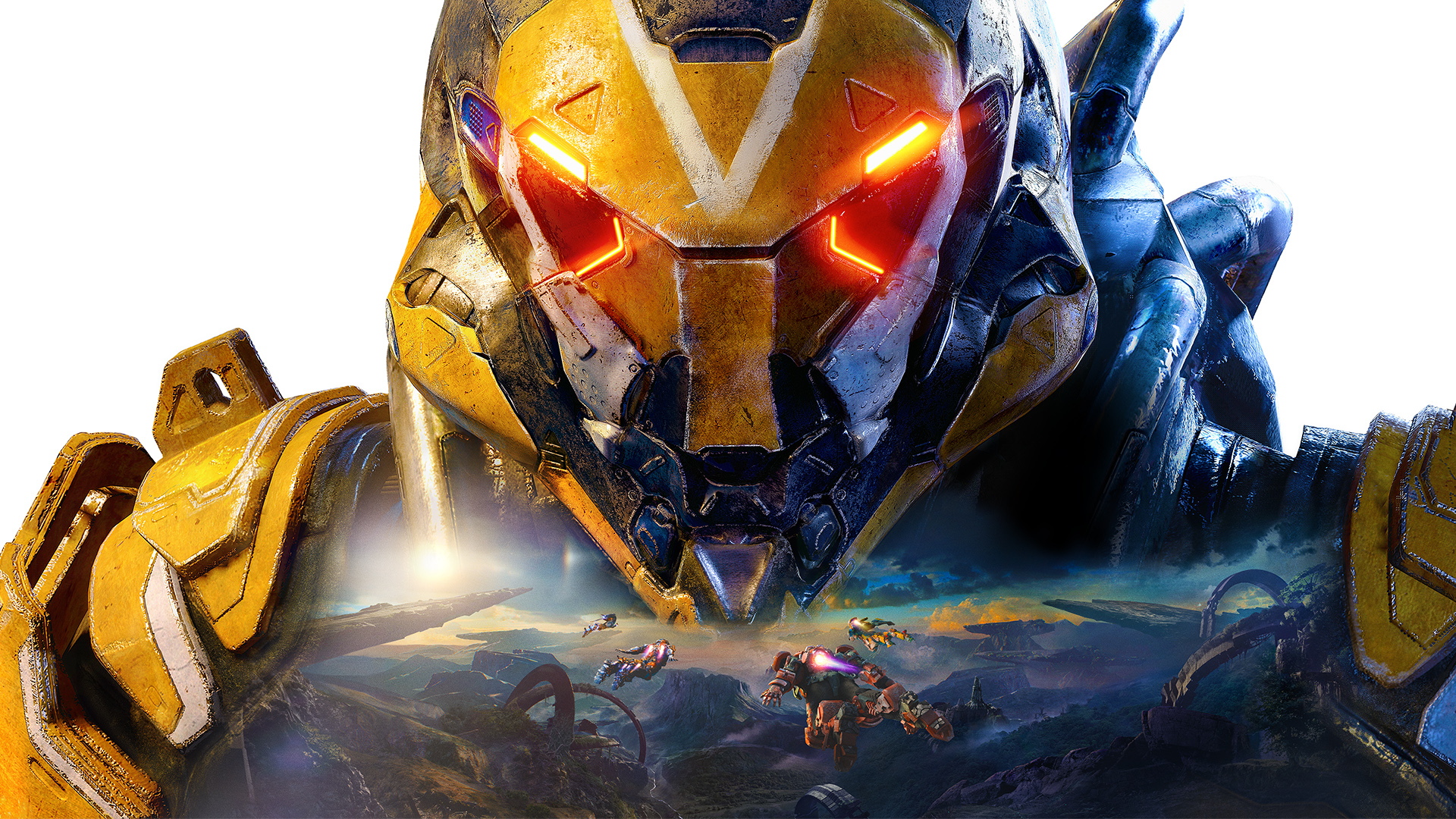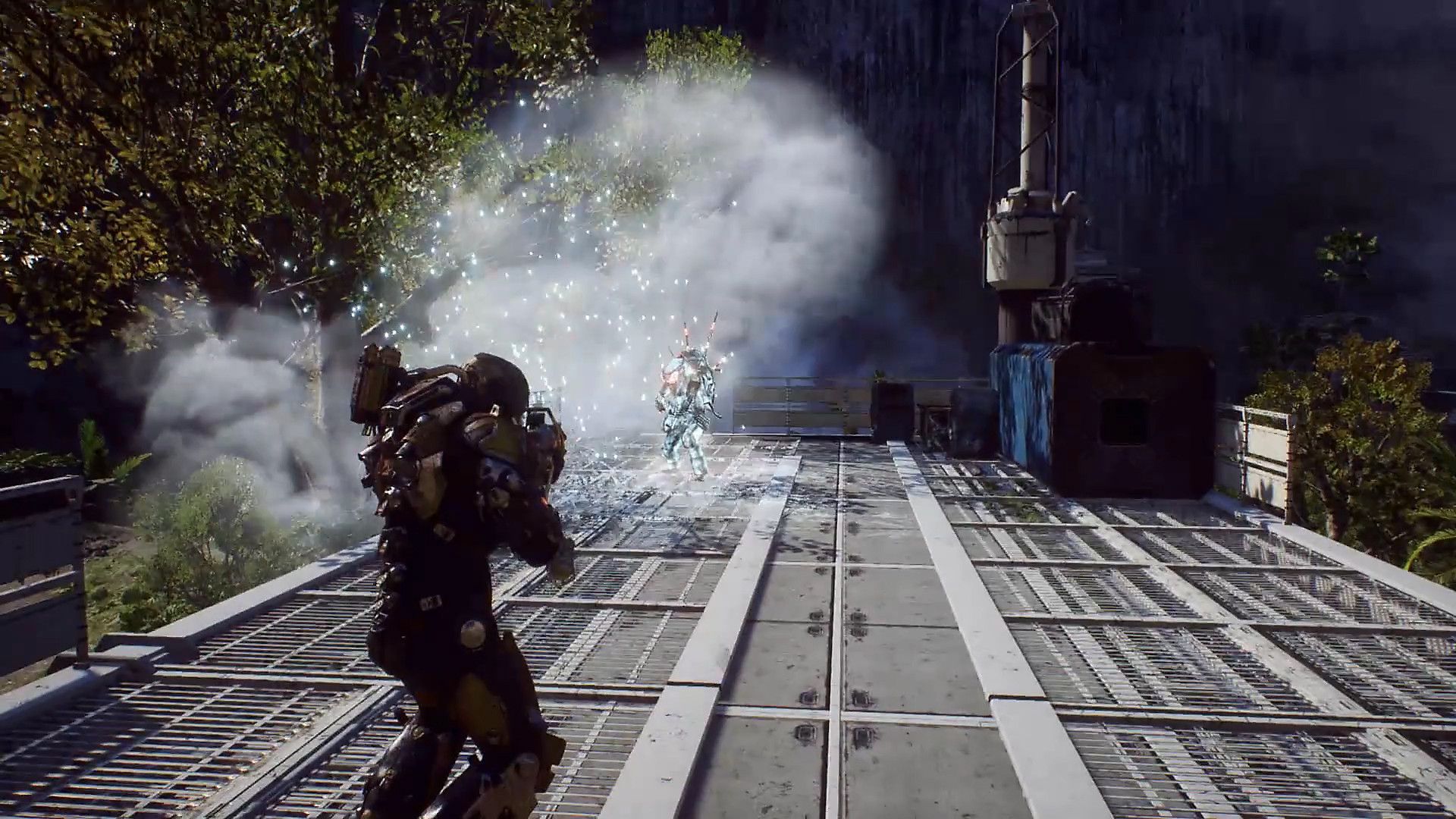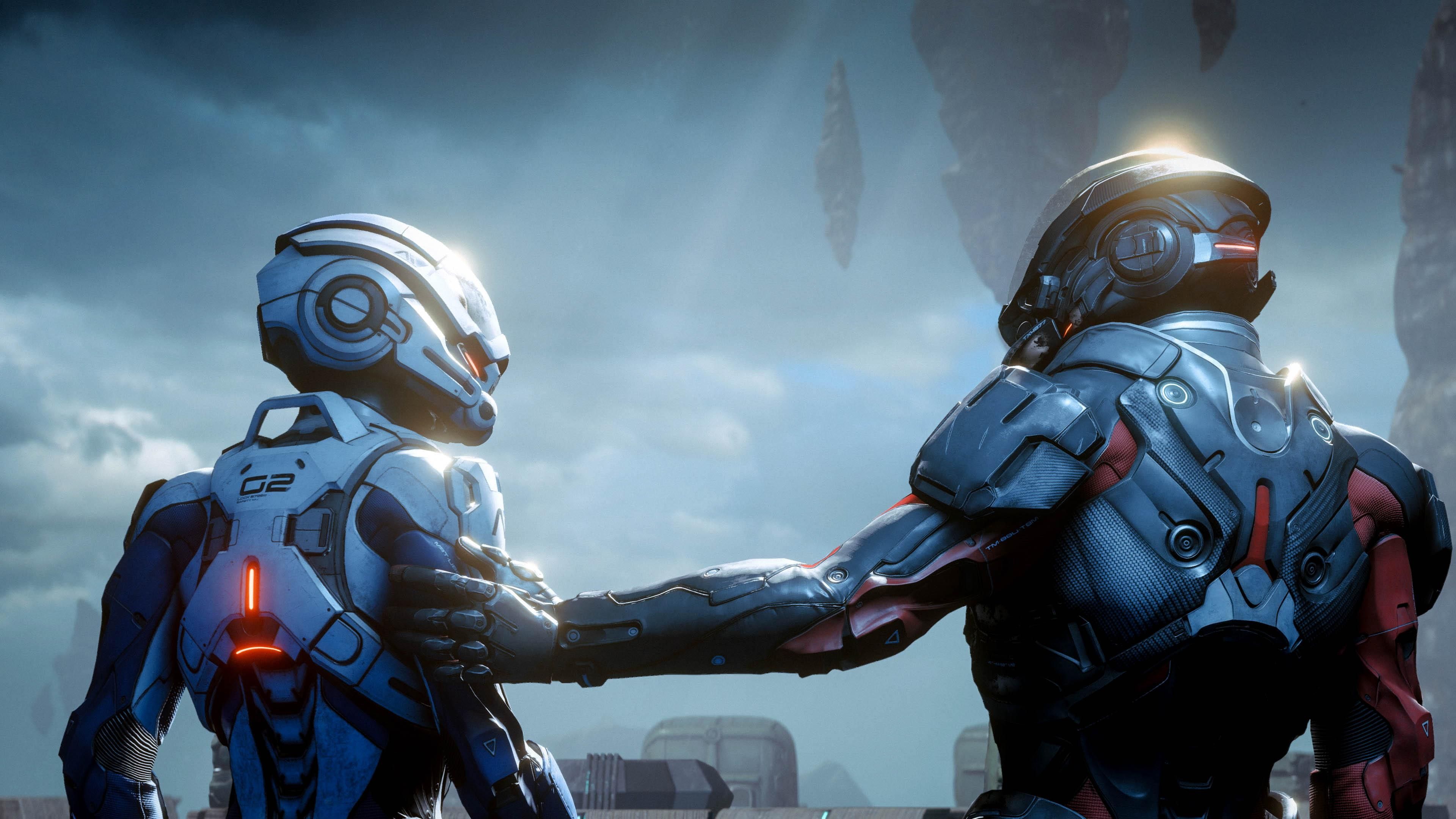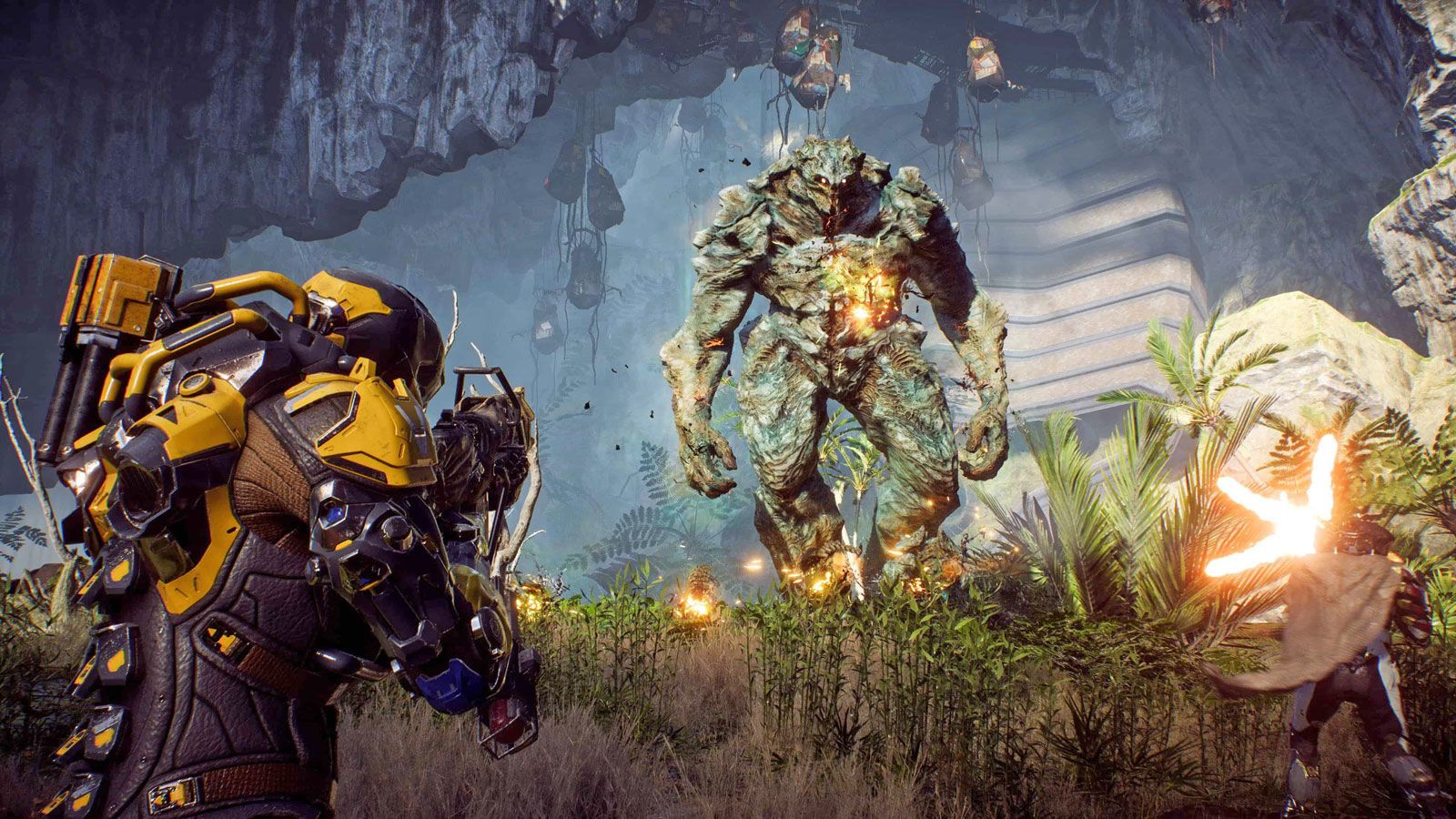Electronic Arts’ much-anticipated, overwhelmingly hyped-up futuristic looter-shooter Anthem symbolizes everything wrong with the big-budget video gaming industry in 2019.
It’s bloated in scale and concept; shallow in gameplay and variety; rich in lore yet simple in story; and eager to tout player freedom while desperately nickel-and-diming its player base. An unashamed knock-off of Activision’s Destiny no doubt put into development by a publisher eager for a slice of the sci-fi loot em’ up pie, Anthem feels like what Digital Extremes’ Warframe might be had it been cobbled together by a team forced into a project in which they weren't the least bit passionate.
In many ways, Anthem feels like a free-to-play experience that charges $60 for the privilege of experiencing it; the missions are repetitive, the combat formulaic and dull, and the side-questing both mandatory and fiendishly obtrusive. While it certainly has its fans and has garnered an overall mediocre not-quite-bad-but-not-quite-good review consensus, there’s no denying that the title hasn’t quite lived up to the publisher-redeeming quality for which everyone was hoping.
READ MORE: Anthem Sales Are Half Of Mass Effect Andromeda's In The UK
It’s important to remember that this probably isn’t BioWare’s fault; forced to reboot the game multiple times in its six year development, they ended up with a product so focus-tested that it could do nothing but bore and disappoint. What’s more, the game launched far too early, and is riddled with bugs and odd omissions, mirroring the situation with Bioware's previous entry, 2017’s Mass Effect: Andromeda.
But what could Anthem’s relative failure mean for the studio behind such beloved titles as Star Wars: The Old Republic and Dragon Age: Origins? Though it’s difficult to say with any real certainty, many have agreed that the future doesn’t look all that bright for the Electronic Arts subsidiary. EA has become notorious for acquiring successful development studios, and then disbanding them when they couldn’t live up to the publisher's expectations.
Let's not forget the studios that have come before - Bullfrog Productions (Populous, Dungeon Keeper), Westwood Studios (Command & Conquer), Pandemic (Star Wars Battlefront), Maxis (SimCity), Visceral Games (Dead Space), and many more.
Though they have a laundry list of dismantled studios under their belt, the most recent major dismissal—and one of the most painful—was that of Dead Space developer Visceral Games. The first two entries into their tremendous Event Horizon-inspired survival horror trilogy were fantastic, but the series was marred by shoehorned microtransactions present in the franchise’s final installment. From that point, Visceral had been given the unenviable task of creating Battlefield’s off-brand cops-and-robbers spinoff which didn’t fare that well, and, in October of 2017, news broke that Visceral would be shutting down.
RELATED: Anthem Exploit Lets Lazy Players Gain XP And Loot From Missions Just For Sitting Around
The same fate befell Maxis, the oft-praised developer behind the famous Sims series of games. While they had initially flourished under the publisher, they were railroaded into the development of SimCity 2013, a title which was essentially dead on arrival thanks to EA’s insistence on an always-online requirement. After that, a major part of the development house was shut down, and the rest of the studio was rolled into EA’s mobile division, which eventually folded into EA Worldwide Studios.
That’s far from all of the developers crushed beneath the weight of EA of course; Bullfrog was disbanded after the disappointing Theme Park Inc. in 2001, Westwood Studios was liquidated in 2003 when Command and Conquer: Renegade failed to meet expectations, and Pandemic Studios was axed after just one year under the publisher. Being acquired by EA isn't always a death sentence, but it must feel like it to developers.
But could EA really disband one of their highest-performing and most beloved development studios? Some seem to think that couldn’t be the case, and many point to an interview with ex-BioWare developer James Ohlen conducted by Game Informer in July of 2018 in which he stated that he didn’t believe the publisher would shut the studio down if Anthem failed. While it may be a nice sentiment, it’s far from concrete proof of Electronic Art’s intentions, and it’s hard to know exactly how far the publisher would be willing to go to save a little green.
That said, if a total shutdown or liquidation is in the future for BioWare, it isn’t likely to happen within the next year. EA is dedicated to their live service model through which they try to further the lifespan and profitability of productions, and they aren’t likely to cut their losses and disband the studio with so much prospective money left on the table after Anthem’s launch. This will all hinge on BioWare’s ability to maintain a player base for the game, however, and, should the game see a steady decline in audience interaction, the curtain may soon be drawn for the once-proud developer.
It's also worth noting that BioWare teased an upcoming game in the Dragon Age saga back in December. While it's a move that has given fans of the studio hope, that doesn't guarantee BioWare's safety. The publisher isn't above cancelling or shifting the development of a game it doesn't believe will be profitable, and it's hard to see a potential Dragon Age 4 fitting the live service mold which Electronic Arts has been so desperate to advance.
Had BioWare been given enough time and a more favorable amount of autonomy, both Mass Effect: Andromeda and Anthem may have been success stories. Yet, after various roadblocks and delays that weren’t delays, it’s hard to say that the game EA once posited to be a Game of the Year contender will meet expectations. Nobody save for the particularly cynical wants to see a game fail—especially one of this magnitude—but gamers simply won’t stand by a publisher more eager to manipulate than mollify.
It’s unfortunate to see BioWare caught in the crossfire between consumers and Electronic Arts, but the writing appears to be on the wall. Respawn Entertainment seems like the new golden child for EA, and, while the publisher may have placed many of its eggs in the Anthem basket, it’s hard to see a scenario in which BioWare comes out of this intact.





